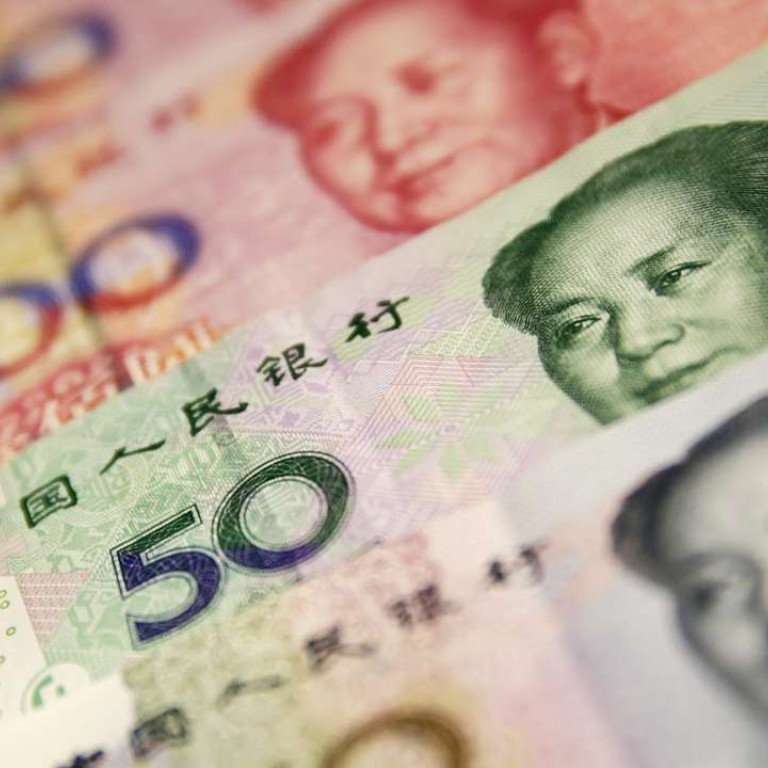
China’s capital controls ‘can harm currency, global ambitions’
Tighter control of yuan undermines Beijing’s aim to create a global reserve, say analysts
China’s latest efforts to impose stricter control on capital outflows, especially on the yuan, are set to hurt its goals of creating an international currency and expanding the nation’s global influence, analysts say.
The Chinese central bank and foreign exchange regulators have made the decisions behind closed doors and declined to confirm the new rules that are circulating on social media applications and grabbing news headlines, raising questions over the transparency of Chinese policymaking.
Tighter control over yuan flows into overseas markets and outbound investment projects undermine Beijing’s own ambition of creating an international currency and expanding China’s business presence abroad, according to analysts.

“In order to become a reserve currency, the markets have to trust the authorities,” Paul Gruenwald, the chief Asia-Pacific economist for S&P Global Ratings, said at a briefing.
While China has the ambition to make the yuan a reserve currency, “it’s not uniformly moving towards a reserve currency” and China’s ambition is “many, many years away”, he said.
China will limit the amount of yuan that Chinese companies can remit outside the country, imposing a cap for the first time in more than two decades, according to an internal document obtained by the South China Morning Post.
This comes in tandem with other restrictive measures, including a stricter checking process for overseas payments under the capital account of more than US$5 million and a ban on foreign real estate investment valued at more than US$1 billion.
Stephen Innes, a senior trader at OANDA Asia Pacific, said the move runs counter to Beijing’s aim of making the yuan a global currency.
“China is sending out a panicking sign that it has no other options to curb the weakening,” Innes said.
“Anything that is not free-market oriented ... it’s viewed badly by the international community. For foreign investors, there is a reluctance to get attached with that side of the market, even if they know in the longer term the yuan is going to reverse.”
China is not shutting down its money links across borders. The Shenzhen-Hong Kong stock link was launched on Monday to provide another channel for mainland and Hong Kong investors to buy set quotas of shares listed on the two bourses.
These limited openings, however, and do not the change the overall trends of a harsher attitude by the mainland authorities towards overseas deals.
Shaun Rein, director of China Market Research Group, said the government’s control of outbound investment risks damaging the competitiveness of mainland companies.
“That’s going to hurt them from acquiring technology and becoming innovative,” Rein said. “It also hurts their ability to become global players.”
Rein said it was understandable for Beijing to impose stricter checks on capital flows because the Chinese government is under “massive pressure” to rein in yuan depreciation at the year end, as the US$50,000 quota will be renewed on the first day of 2017. From then, those who have used up their annual quota in 2016 can again purchase dollars.
Capital exodus could also complicate Beijing’s battle to keep the yuan value stable.
While the Chinese government has pledged to let market forces decide the yuan value, the central bank is reluctant to permit a quick and deep deprecation of the yuan against the dollar.
Chen Zhiwu, director of the Asia Global Institute at the University of Hong Kong, said the authority had yet to give clear policy signals to the market and that vagueness would in turn damage the yuan’s reputation.
“The policy ambiguity leads to concerns over the yuan’s value in the long run,” Chen said.
He said Beijing could have avoided the problem by allowing a one-off, fast depreciation of its currency.
“As long as the process continues, people will expect the yuan to fall,” he said.
Heavy government intervention in the capital account has also led to concerns over the long-term health of the economy, with investors questioning whether Beijing is shelving its market-oriented reforms.
Zhu Chaoping, China economist at UOB Kay Hian, said capital control works only in the short term to stabilise the exchange rate, but such policies hurt growth momentum if they are kept for more than a year.
“Government policies do not ease the market expectation that the yuan will continue to depreciate,” Zhu said.
“If people only see capital control being tightened without any signs of reform, they will gradually lose confidence in the Chinese economy.”


